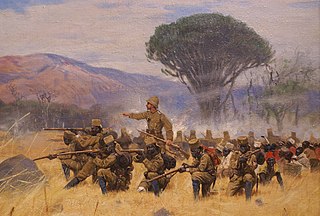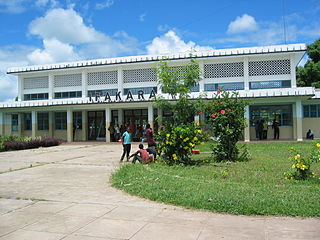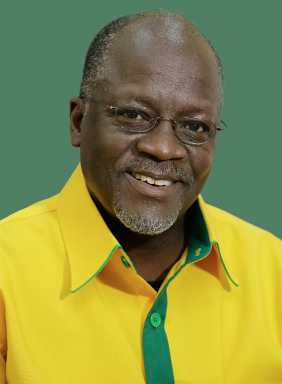 MSABI logo | |
| Established | 2009 |
|---|---|
| Founder | Dale Young |
Staff | 73 [1] |
| Website | msabi |
MSABI is a non-governmental organization founded by Dale Young in 2009 in Ifakara, Tanzania. Its projects focus on water sanitation, hygiene, and education.
 MSABI logo | |
| Established | 2009 |
|---|---|
| Founder | Dale Young |
Staff | 73 [1] |
| Website | msabi |
MSABI is a non-governmental organization founded by Dale Young in 2009 in Ifakara, Tanzania. Its projects focus on water sanitation, hygiene, and education.

Engineer Dale Young moved to Tanzania in 2007 with his partner who was conducting malaria research. He founded MSABI in 2009 after witnessing a cholera outbreak that resulted from unclean drinking water. [2] The name stands for Maji Safi kwa Afya Bora Ifakara, which translates to "Safe Water for Better Health Ifakara." [3] MSABI's projects focus on installing water pumps, distributing filter pots, building latrines, and educating people on sanitation and hygiene. [4]
The aim is to combat diarrhoea, cholera, typhoid, and trachoma, which all may be caused from poor quality drinking water. [3]
MSABI partners with Engineers Without Borders (UK) [5] for surveying, drilling, manufacturing, and capacity building projects. [6] EWB UK also provides international training courses at MSABI. [7]
MSABI has provided more than 60 water points and more than 1,400 filters which together serve more than 17,000 users. [1]

MSABI produces and distributes ceramic water filters, which are branded Tembo filter pots. The filters cost the equivalent of $18 USD. [8] They are manufactured by the Upendo Women's Group in collaboration with MSABI. [9] MSABI currently has a production capacity of 3,600 filter pots per year. [10] These filters help remove iron and manganese known to be found in water in the area. [11]
Engineers Without Borders International (EWB-I) is an association of individual Engineers Without Borders/Ingénieurs sans frontières groups. EWB-I facilitates collaboration and the exchange of information among the member groups. EWB-I helps its member groups develop their capacity to assist underserved communities in their respective countries and around the world.

Engineers Without Borders Canada, abbreviated EWB or ISF, is a non-governmental organization devoted to international development. Founded in 2000 by George Roter and Parker Mitchell, engineering graduates from the University of Waterloo, it is a registered Canadian charity focused on finding solutions to extreme poverty, specifically in rural Africa. The group has chapters at universities across Canada, and regional chapters aimed at professionals in several major cities.

The Maji Maji Rebellion, was an armed rebellion of Muslim and animist Africans against German colonial rule in German East Africa. The war was triggered by German Colonial policies designed to force the indigenous population to grow cotton for export. The war lasted from 1905 to 1907, during which 75,000 to 300,000 died, overwhelmingly from famine.

Slow sand filters are used in water purification for treating raw water to produce a potable product. They are typically 1–2 m (3.3–6.6 ft) deep, can be rectangular or cylindrical in cross section and are used primarily to treat surface water. The length and breadth of the tanks are determined by the flow rate desired for the filters, which typically have a loading rate of 200–400 litres (0.20–0.40 m3) per square metre per hour.
Engineers Without Borders – USA (EWB–USA) is a non-profit humanitarian organization. It represents the United States within the larger international Engineers Without Borders in the U.S. It involves the implementation of sustainable engineering projects, while involving and training engineers and engineering students.
Engineers Without Borders UK is a UK-based registered charity and NGO.
Engineers Without Borders Australia (EWB) is an Australian non-profit organisation with 20 active chapters, operating nationally and internationally with the published aim of improving the quality of life of disadvantaged communities through education and the implementation of sustainable engineering projects. EWB Australia was established in 2003 by a group of engineers from Melbourne who were motivated to take action on the developmental front through engineering.

Ifakara is a town in the Kilombero District, Morogoro Region, south central Tanzania. It is the headquarters of the Kilombero District administration and the main trading centre for Kilombero and Ulanga districts. The town is located near the Tanzania-Zambia Railway (TAZARA) line, at the edge of the Kilombero Valley, a vast swampland flooded by the mighty Kilombero River.

Kibondo District is one of the six districts of Kigoma Region, Tanzania. It is bordered to the north by the Kakonko District, to the east by the Tabora Region, to the south by the Uvinza District, to the west by the Kasulu District and to the northwest by Burundi.
Humanitarian engineering is the application of engineering for humanitarian aid purposes. As a meta-discipline of engineering, humanitarian engineering combines multiple engineering disciplines in order to address many of the world's crises and humanitarian emergencies, especially to improve the well-being of marginalized populations.
Rujewa is an administrative ward in the Mbarali district of the Mbeya Region of Tanzania. In 2016 the Tanzania National Bureau of Statistics report there were 32,483 people in the ward, from 29,473 in 2012.
Engineers Without Borders (EWB) Palestine is a Palestine-based registered charity and NGO. Its mission is to "partner with Palestinian disadvantaged communities to improve their quality of life through the implementation of environmentally and economically sustainable engineering projects, while developing internationally responsible engineers and engineering students."
Engineers Without Borders New Zealand (EWBNZ) is a not-for-profit organisation based in New Zealand who champion humanitarian engineering as a means to improve community well-being, opportunity and alleviate poverty in all its forms. The organisation is member-based and incorporates several chapters of professional engineers, in Auckland, Hamilton, Wellington and Christchurch as well as two student chapters, from the University of Canterbury and the University of Auckland.
The term Engineers Without Borders is used by a number of non-governmental organizations in various countries to describe their activity based on engineering and oriented to international development work. All of these groups work worldwide to serve the needs of disadvantaged communities and people through engineering projects. Many EWB national groups are developed independently from each other, and so they are not all formally affiliated with each other, and their level of collaboration and organizational development varies. The majority of the EWB/ISF organizations are strongly linked to academia and to students, with many of them being student-led.
Engineers Without Borders – Lebanon (EWB–Lebanon) is a non-profit group of engineers dedicated to public work and sustainable development. The group aims to help disadvantaged communities throughout Lebanon.

John Pombe Joseph Magufuli was the fifth president of Tanzania, serving from 2015 until his death in 2021. He served as Minister of Works, Transport and Communications from 2000 to 2005 and 2010 to 2015 and was chairman of the Southern African Development Community from 2019 to 2020.
The Ifakara Health Institute (IHI) is a health research organization with offices in Ifakara, Dar es Salaam, Ikwiriri, Bagamoyo, and Mtwara, Tanzania. The institute conducts health-related research in a variety of areas, including malaria and HIV/AIDS.

The Human Development Innovation Fund is a UKAid financed 40 million British Pound challenge fund providing grants to businesses, NGOs and research institutions for scaling innovations focused on the quality, value for money, and sustainability of basic services in education, health and water, sanitation and hygiene (WASH). HDIF was launched on May 12, 2014 with the support of the Vice President of Tanzania.
Boonah Kaluwa has been a representative of the Segerea Constituence in the Parliament of Tanzania since 2015. Prior to winning the general election, Bonnah was a ward councillor of Kipawa where she lived for five years from 2010.
Engineers Without Borders (EWB) is a Cameroonian non-profit organization founded on 14 October 2003 in Yaoundé, Cameroon. As a development-based association, Engineers Without Borders - Cameroon works to promote human development by sharing and giving access to relevant scientific and technological knowledge, implementing engineering projects with respect for the environment, economic and social adaptation, and developing partnership and synergy within the engineering domain.
To date courses have been delivered with Engineers Without Borders UK partners IRRI and CATIS in Mexico, the Centre for Science and Environment in India, and MSABI in Tanzania.
MSABI is one of the largest producers of household water treatment solutions in Tanzania. In 2014, we increased sales by a factor of 3 compared to the previous year. The market for filters is slowly developing. Filters are available for an equivalent of 18 USD. We are gradually increasing the retail cost to fully capture management and marketing costs and create a sustainable, non-subsidized market.